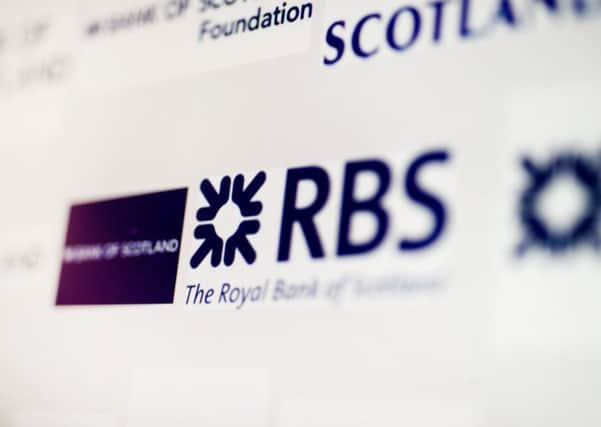Royal Bank of Scotland profits rise as lender issues special dividend


The lender, still 62.4 per cent owned by the UK government, saw bottom line profits more than double from £752 million last year to £1.62bn, representing a 116 per cent increase. Full year pre-tax operating profit rose 50 per cent to £3.4bn.
It marks the bank’s second consecutive year in the black following a decade-long run of stinging losses, during a period marred by crisis-era legacy and conduct charges.
Advertisement
Hide AdAdvertisement
Hide AdThe government will also pocket £977m as RBS coughed up its second dividend since its £45bn bailout a decade earlier. The cash will be given to UK Government Investments, which manages the taxpayer’s stake in the lender.
The bank paid out a 3.5p final dividend and a 7.5p special dividend, meaning the total returned to shareholders in the year amounts to £1.6bn.
Chief executive Ross McEwan said: “This is a good performance in the face of economic and political uncertainty, with bottom line profits more than double what we achieved the previous year.
“We are also announcing an intention to pay back more capital to shareholders and almost £1bn is set to be returned to UK taxpayers for 2018. With strong capital and liquidity levels, we are well positioned to support the UK economy.”
RBS resumed paying dividends in August when it reached a $4.9bn (£3.7bn) settlement with US authorities over claims that it mis-sold mortgages in the run-up to the financial crisis. Today’s figures take into account conduct and litigation costs of £1.28bn.
McEwan also warned that “political uncertainty around Brexit has gone on far too long”, adding that the bank’s corporate clients are pausing investment and this will have an impact on income over the next two years.
His comments chime with official data showing that Brexit is damaging the economy. “The economy is cooling off and we are starting to feel it,” the chief executive added.
In October, RBS set aside £100m to reflect the “more uncertain economic outlook” in Britain ahead of the EU departure date of 29 March 29. It has also set up operations in Amsterdam and Frankfurt to serve EU clients.
Advertisement
Hide AdAdvertisement
Hide AdWhile overseeing the bank’s turnaround, McEwan has embarked on a swingeing bank closure programme but confirmed that no further branch closures are planned in 2019 or 2020.
The New Zealander does not expect further litigation linked to GRG, the lender’s controversial restructuring unit which was accused of mistreating small businesses.
RBS’ annual report, published alongside the results, showed that McEwan’s total pay package rose from £3.5m to £3.6m in 2018. The bank also confirmed that it will dish out £335m in bonuses to staff.
Accounts show that RBS stripped out £278m in costs last year, and aims to slash a further £300m this year. The stellar figures will prompt the government to consider when to recommence the next round of share sales.
Last week the lender gained shareholder approval that allows it to buy back up to £1.5bn worth of shares from the Treasury. The move, which aims to speed up its privatisation and deploy excess capital, permits RBS to purchase up to 4.99 per cent of the government’s stake in any one year.
RBS has been majority taxpayer owned since 2008, when it received a £45bn bailout at the height of the financial crisis. The Treasury plans to sell its stake by 2024 but is expected to lose billions in the process.
The bank’s shares have rallied since December, but the company’s stock is trading at around 244p, a far cry from when it was bailed out at 502p per share.